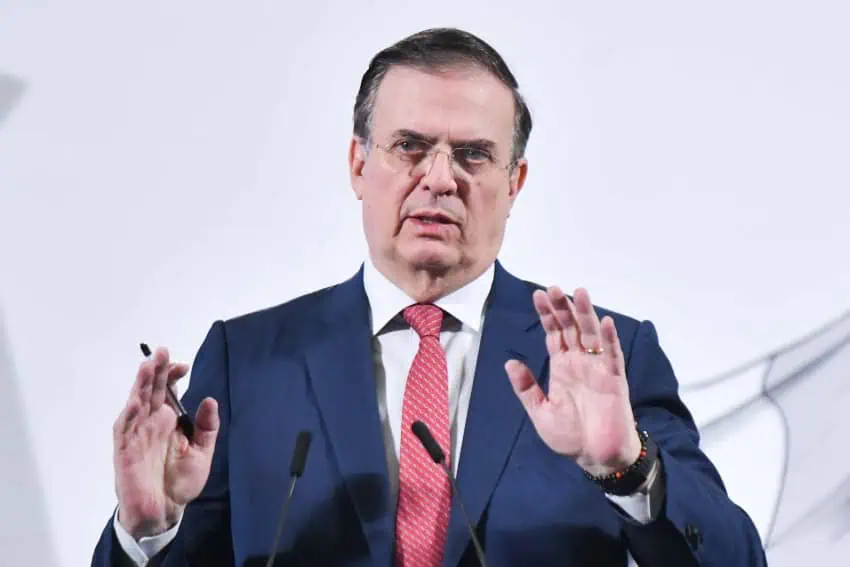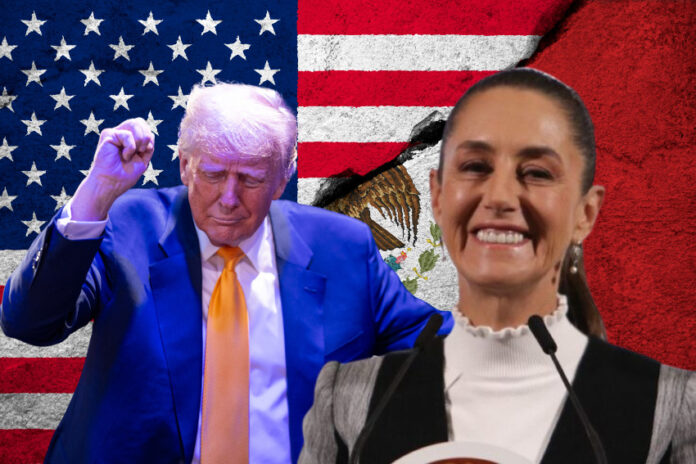President Claudia Sheinbaum spoke to United States President Donald Trump by telephone on Wednesday, a call both leaders described as “very productive” without going into significant detail.
“Had a very productive call with the President of Mexico yesterday,” Trump wrote on Truth Social on Thursday morning.
“Likewise, I met with the highest level Japanese Trade Representatives. It was a very productive meeting. Every Nation, including China, wants to meet! Today, Italy!” he said.
Sheinbaum subsequently acknowledged her call with Trump in a post to X.
“As he mentions on his account, it was very productive,” she wrote.
“We will continue dialogue to reach good agreements that benefit our country and our people,” Sheinbaum said.
El día de ayer tuvimos una llamada con el presidente Trump. Como lo menciona en su cuenta, fue muy productiva. Seguiremos dialogando para alcanzar buenos acuerdos que beneficien a nuestros países y nuestros pueblos.
— Claudia Sheinbaum Pardo (@Claudiashein) April 17, 2025
The call came a day after Fox News broadcast an interview during which Trump asserted that the Mexican government is “very afraid” of drug cartels and that those criminal groups “run large sections” of Mexico. Sheinbaum dismissed Trump’s remarks at her Wednesday morning press conference, and revealed that her government had sent a diplomatic note to the United States over its transfer of control of a section of land along the U.S.-Mexico border to the U.S. army.
The Mexican president has consistently maintained that her government is willing to collaborate with the Trump administration on security issues but will not accept subordination or any violation of Mexico’s sovereignty.
Trade was likely another issue discussed by Sheinbaum and Trump in their call on Wednesday as Mexico is currently attempting to negotiate better trading conditions with its northern neighbor. Since Trump began his second term in January, the United States has imposed tariffs on Mexican steel and aluminum, cars made in Mexico and goods that don’t comply with the rules of the USMCA free trade pact.
In March, the United States briefly imposed 25% tariffs on all imports from Mexico and most imports from Canada due to what the White House said was the two countries’ failure to adequately stem the flow of “lethal drugs” such as fentanyl into the U.S.
On April 3, Economy Minister Marcelo Ebrard said that Mexico’s goal was “to achieve the best [trading] conditions among all countries of the world for the [Mexican] auto industry.”
“The same thing for steel and aluminum. We’re going to be working the next 40 days. That is what comes next, and we estimate that it will be around 40 days of negotiations,” he said.

Ebrard can now add tomatoes to the list of products for which he is attempting to achieve tariff relief, as the United States government announced on Monday that it intends to impose duties of almost 21% on imports of most tomatoes from Mexico starting in July.
5 calls in 5 months
Sheinbaum and Trump have now spoken by telephone on five occasions since the latter won the U.S. presidential election on Nov. 5. They have not yet met face-to-face.
Here is a summary of the two leaders’ four previous calls.
- In a Nov. 7 call, Sheinbaum said she and Trump discussed “the good relationship there will be between Mexico and the United States.”
- After a Nov. 27 call, Sheinbaum rejected Trump’s claim that she agreed in the call to “effectively” close the Mexico-U.S. border.
- In a Feb. 3 call — two weeks after Trump began his second term — the two leaders reached what Sheinbaum called “a series of agreements,” including one to postpone a 25% tariff that the U.S. was about to impose on all imports from Mexico. During the call, Sheinbaum said she committed to immediately deploy 10,000 National Guard troops to the northern border “to avoid the trafficking of drugs from Mexico to the United States, in particular fentanyl.”
- After a March 6 call, Trump said he had “agreed that Mexico will not be required to pay Tariffs on anything that falls under the USMCA Agreement,” thus suspending tariffs on USMCA-compliant goods that had taken effect two days earlier. “I did this as an accommodation, and out of respect for, President Sheinbaum. Our relationship has been a very good one, and we are working hard, together, on the Border, both in terms of stopping Illegal Aliens from entering the United States and, likewise, stopping Fentanyl,” the U.S. president wrote on Truth Social at the time.
By Mexico News Daily chief staff writer Peter Davies (peter.davies@mexiconewsdaily.com)
